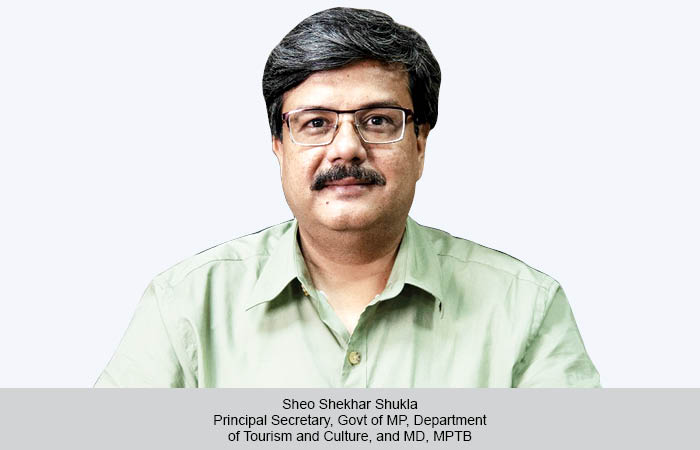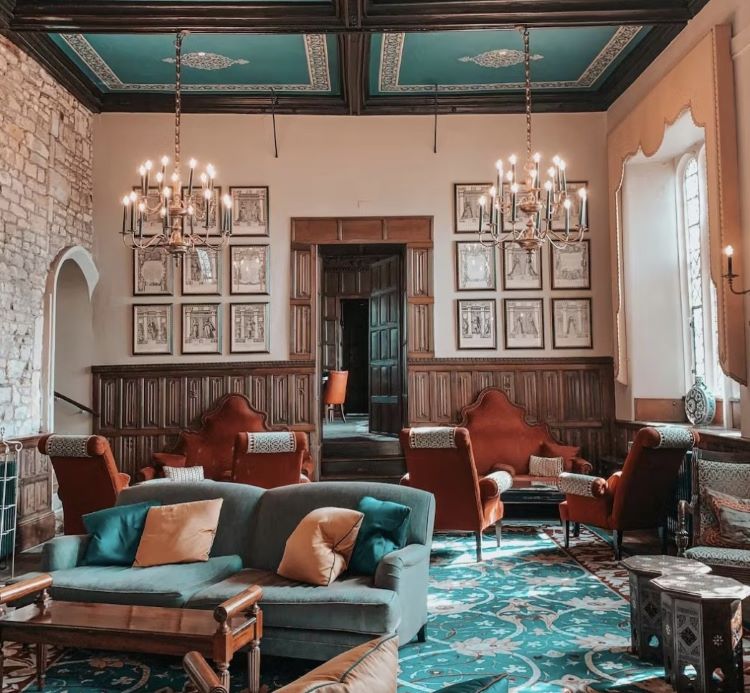The state is dedicated towards sustainable and responsible tourism, especially with its rich cultural and natural heritage, which sets it apart as a model for many other Indian states. Currently, its tourism board is aiming to create tourism experiences that not only showcase its beauty but also ensure its preservation for future generations.
Janice Alyosius
Madhya Pradesh, also known as the Tiger State of India, is home to an incredible diversity of wildlife, including 785 tigers, leopards, vultures, and gharials. Its lush landscapes feature 11 national parks, 7 tiger reserves, and 24 wildlife sanctuaries, making it a paradise for nature lovers. However, with increasing tourism demand, the state has successfully balanced conservation with development.
Wild at heart
“At the core of Madhya Pradesh’s tourism strategy is sustainability. We are committed to preserving our natural resources while promoting responsible tourism. Our national parks have clearly defined boundaries that are non-negotiable, ensuring that wildlife habitats are protected. Instead of promoting large-scale tourism, we focus on ‘low-impact’ activities like guided nature walks and bird-watching, which provide enriching experiences without disturbing the ecosystem,” stated Sheo Shekhar Shukla, Principal Secretary, Government of MP, Department of Tourism and Culture, and Managing Director, Madhya Pradesh Tourism Board.
UNESCO sites
The state also boasts 14 UNESCO World Heritage sites, including Orchha, which is set for nomination by 2027-28. “We place the community at the heart of heritage conservation. By involving local populations and fostering a sense of pride and belonging, we have successfully integrated conservation with urban development,” Shukla shared.
He highlighted the role of UNESCO in supporting the state’s cultural initiatives, “Gwalior and Orchha have been selected by UNESCO as part of the Historic Urban Landscape Recommendation (HULR), and Gwalior’s recognition under the Creative City Network for Music Activity further underscores our efforts. Our partnership with the Swadesh Darshan 2.0 initiative will elevate tourism in cities like Gwalior and Chitrakoot.”
Sustainability at core
Sustainability has become a global priority in tourism, and Madhya Pradesh is no exception. Under the Responsible Tourism Mission, the state has been actively working on eco-friendly projects. “Our homestay initiative is a major success. So far, we have constructed 305 homestays, including 41 rural homestays spread across 16 villages. These provide not only unique experiences for tourists but also livelihood opportunities for local communities,” Shukla said.
MP’s efforts extend to eco-friendly infrastructure, waste management, and renewable energy projects in tourism facilities. “We are implementing sustainable building practices, promoting vernacular architecture, and fostering local arts and crafts to make communities self-reliant,” he added.
Trade-friendly approach
The state’s collaboration with the travel trade plays a pivotal role in promoting responsible wildlife and cultural tourism.
“We work closely with travel agents to create eco-friendly tours that minimise environmental impact and offer authentic cultural experiences. Our partnership with IATO members allows us to offer customised itineraries to both domestic and international tourists, ensuring that our tours respect local traditions and support conservation efforts,” Shukla shared.
Travel agents can expect support from MP Tourism in the form of training, certification, marketing assistance, and access to resources. “We aim to build a tourism ecosystem that benefits both the environment and the local communities,” Shukla emphasised.
Projects galore
With a growing interest in experiential and eco-friendly travel, the state has been quick to innovate. “Our Responsible Tourism Mission promotes homestays, rural experiences, and eco-friendly accommodation. In collaboration with TOFTigers, we’ve achieved Footprint certification for wilderness accommodations in places like Kanha, Pench, Panna, and Bandhavgarh,” he said.
The state is also home to India’s first craft handloom village, Pranpur, offering tourists a deep dive into the local craft heritage.
 TravTalk India Online Magazine
TravTalk India Online Magazine





